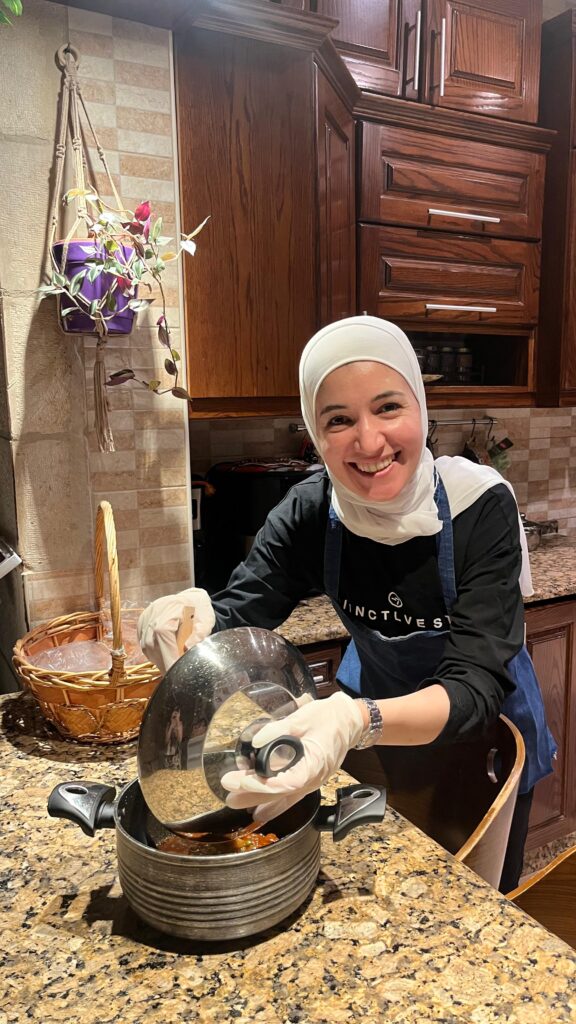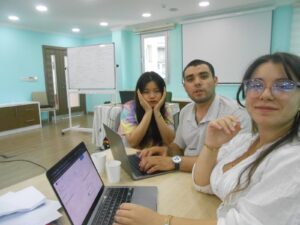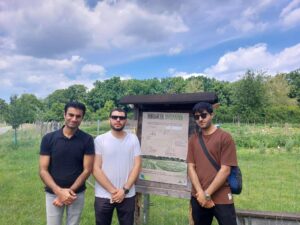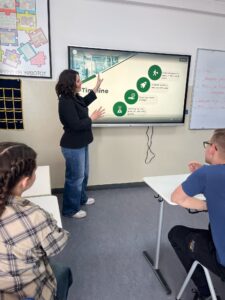My name is Areej Husam from Jordan. My idea is to support women-led community kitchens that prepare and sell traditional foods as a way to generate income while preserving local food culture.
I joined the job shadowing because I wanted to understand how local food systems work in practice—and what role they play in food  security and community development.
security and community development.
I started with the FoodBack workshop hosted by PLAY Jordan, where I first explored how food systems are connected to environmental, social, and economic issues. Later, I attended the youth seminar, where I shared my business idea and gained feedback. Those early steps
helped me refine my approach and pushed me to think beyond charity models toward real empowerment.
My placement was with a women-led kitchen collective in Zarqa. The group produces and sells meals at local markets and events, with a focus on traditional dishes. It’s more than a business—it’s a network of mutual support.
During the job shadowing, I saw how decisions were made collaboratively, how costs were managed, and how each woman brought unique skills. It challenged the idea that you need formal training to run something well. This system worked because it was built on trust, shared goals, and lived experience. The biggest takeaway was seeing how food production can be a tool for independence. Every step of the process—from planning to packaging—became an act of ownership. It also helped me understand how food relates to dignity and identity, especially in low-resource communities.
This experience helped me reframe empowerment. It’s not about providing help—it’s about removing barriers and respecting what people already know. I also saw how food can connect people and build economic stability without losing its cultural value. That balance is something I want to support through my idea.
I’m now working on a small guide to help women’s groups set up informal kitchens with simple tools and clear processes. I want to focus on low-cost, low-waste operations rooted in cultural knowledge. For future participants, my advice is: observe and listen—communities often already have the solutions; they just need space to grow.
Areej




